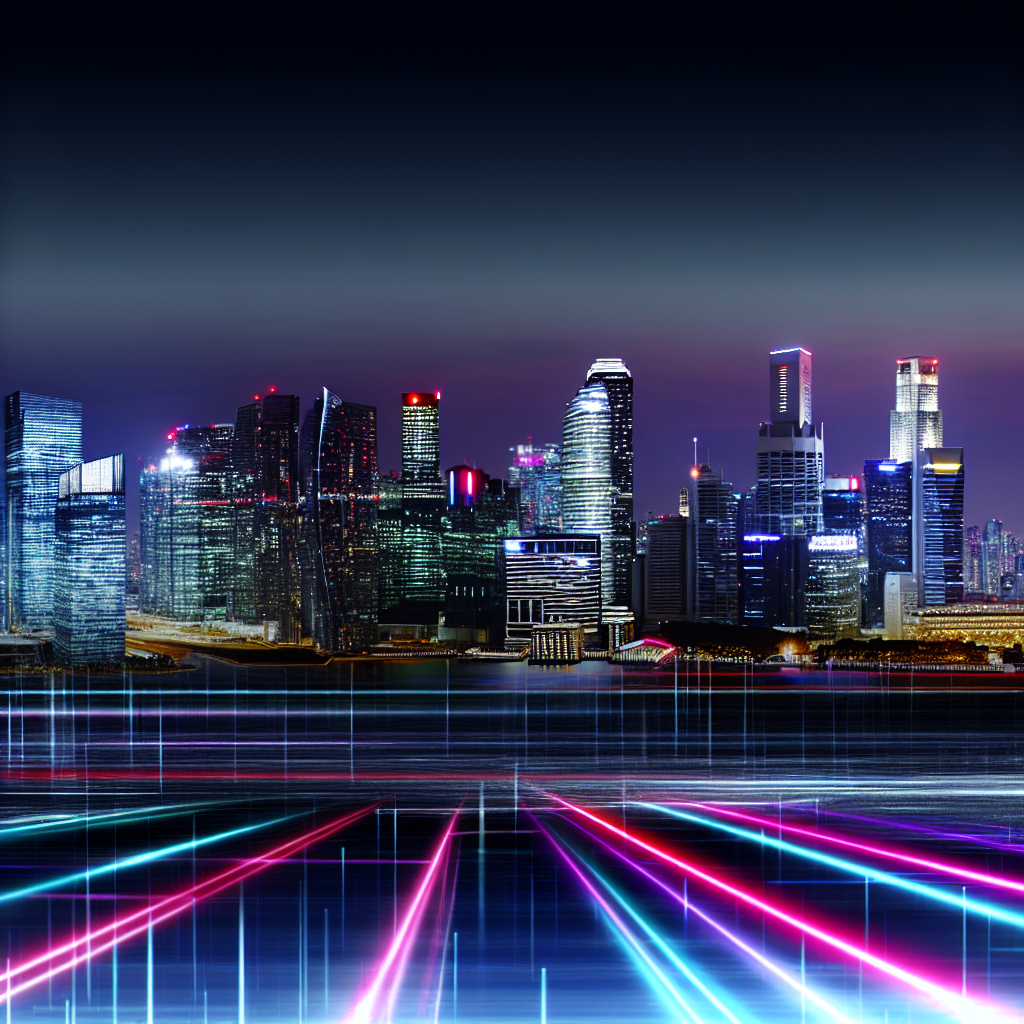Smart cities are using IoT technology to improve urban living by optimizing resources, reducing energy consumption, and enhancing public services. Sustainability is a key focus, with smart cities leveraging technology to create more efficient, livable, and environmentally friendly spaces for residents. Collaboration between government, businesses, and residents is crucial for navigating the evolution of smart cities.
In recent years, the concept of smart cities has gained significant momentum, transforming urban living in ways we never thought possible. Through the integration of cutting-edge technology like IoT (Internet of Things), cities around the world are becoming more efficient, sustainable, and convenient for residents. This article will delve into the evolution of smart cities, exploring how technology is revolutionizing urban living. From enhancing public services to leading the way in sustainability, smart cities are paving the path for a brighter future. Join us as we navigate the exciting journey of smart cities and discover how embracing technology can lead to better urban living for all.
- 1. "The Rise of Smart Cities: How IoT is Revolutionizing Urban Living"
- 2. "Sustainability and Urban Living: How Smart Cities are Leading the Way"
- 3. "Enhancing Public Services in Smart Cities: The Future of Urban Infrastructure"
- 4. "Navigating the Evolution of Smart Cities: Embracing Technology for Better Urban Living"
1. "The Rise of Smart Cities: How IoT is Revolutionizing Urban Living"
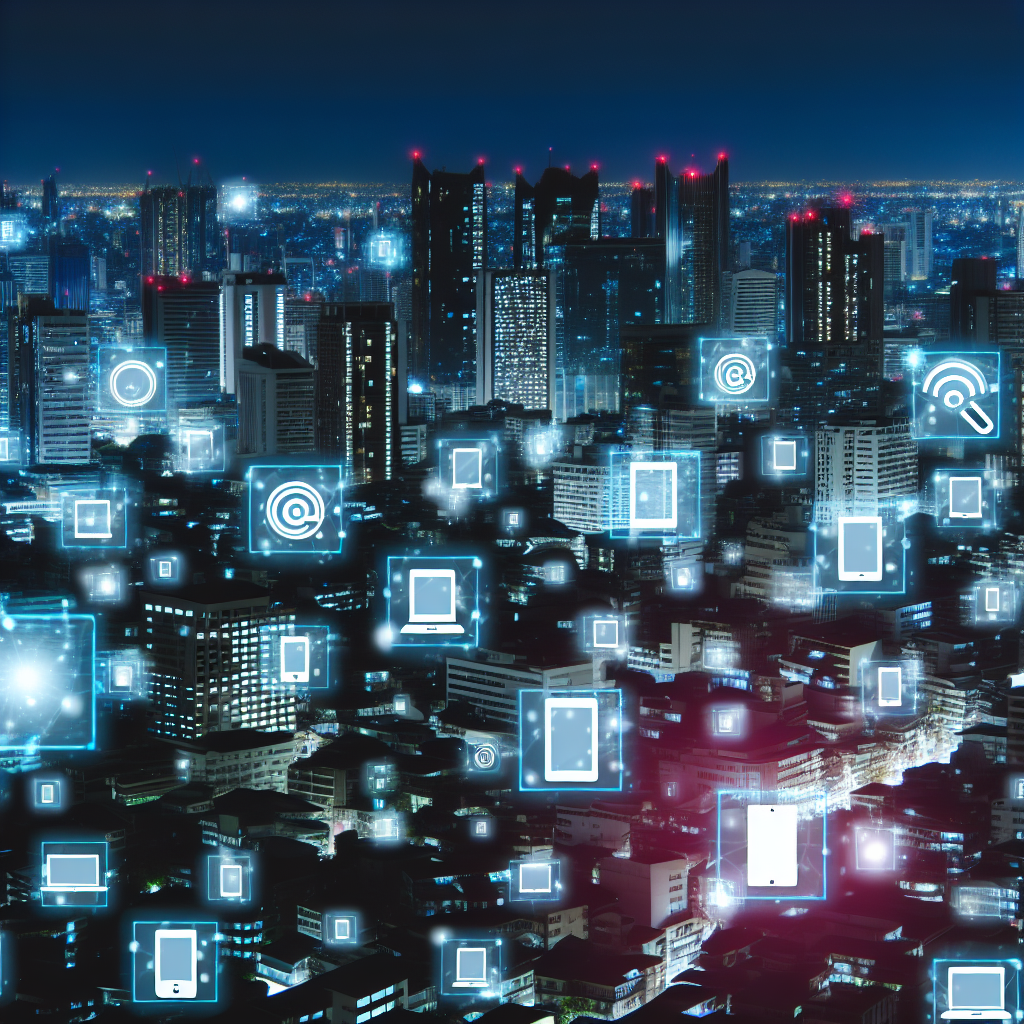
One of the key drivers behind the evolution of smart cities is the Internet of Things (IoT). IoT refers to the network of interconnected devices and sensors that collect and exchange data to improve efficiency and enhance quality of life. In the context of smart cities, IoT technology is revolutionizing urban living by enabling cities to become more sustainable, efficient, and responsive to the needs of their residents.
Through IoT, cities are able to collect real-time data on various aspects of urban life, such as traffic patterns, air quality, energy consumption, and waste management. This data is then used to inform decision-making and improve the delivery of public services. For example, sensors installed in streetlights can detect when a light bulb needs to be replaced, reducing maintenance costs and improving energy efficiency. Similarly, smart parking systems can help drivers find parking spaces more easily, reducing traffic congestion and emissions.
Furthermore, IoT technology is enabling cities to become more sustainable by optimizing resource usage and reducing environmental impact. For instance, smart irrigation systems can monitor soil moisture levels and weather conditions to ensure that water is used efficiently in parks and green spaces. Additionally, smart energy grids can balance supply and demand in real time, leading to greater energy efficiency and reduced carbon emissions.
Overall, the rise of smart cities powered by IoT technology is transforming urban living by making cities more sustainable, efficient, and responsive to the needs of their residents. By leveraging the power of IoT, cities can improve public services, enhance quality of life, and create a more connected and inclusive urban environment for all.
2. "Sustainability and Urban Living: How Smart Cities are Leading the Way"
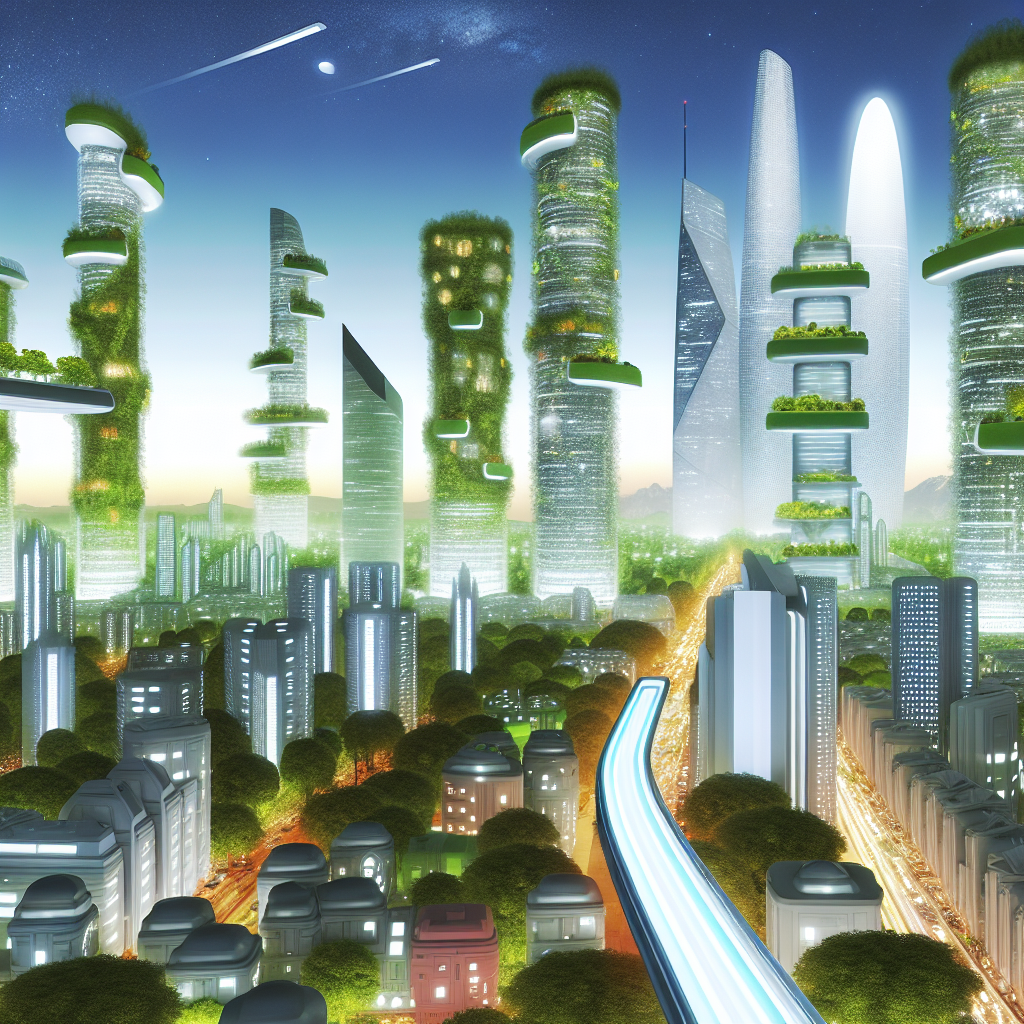
Smart cities are at the forefront of promoting sustainability and improving urban living through the integration of technology and innovative solutions. By leveraging the Internet of Things (IoT) and other advanced technologies, smart cities are able to optimize resource usage, reduce waste, and minimize their environmental impact.
One key aspect of sustainability in smart cities is the implementation of energy-efficient infrastructure and buildings. Smart grids and energy management systems enable cities to monitor and control energy usage in real-time, leading to significant cost savings and reduced carbon emissions. Additionally, smart transportation systems help to reduce traffic congestion and air pollution, promoting cleaner and more sustainable modes of transportation.
Furthermore, smart cities are also leading the way in promoting sustainable public services. Through the use of data analytics and predictive modeling, cities are able to optimize the delivery of services such as waste management, water distribution, and emergency response. This not only improves the efficiency of these services but also reduces their environmental impact by minimizing resource consumption and emissions.
Overall, smart cities are paving the way for a more sustainable future by harnessing the power of technology to enhance urban living and promote environmental stewardship. As more cities around the world embrace the concept of smart cities, we can expect to see even greater advancements in sustainability and a more livable urban environment for all residents.
3. "Enhancing Public Services in Smart Cities: The Future of Urban Infrastructure"
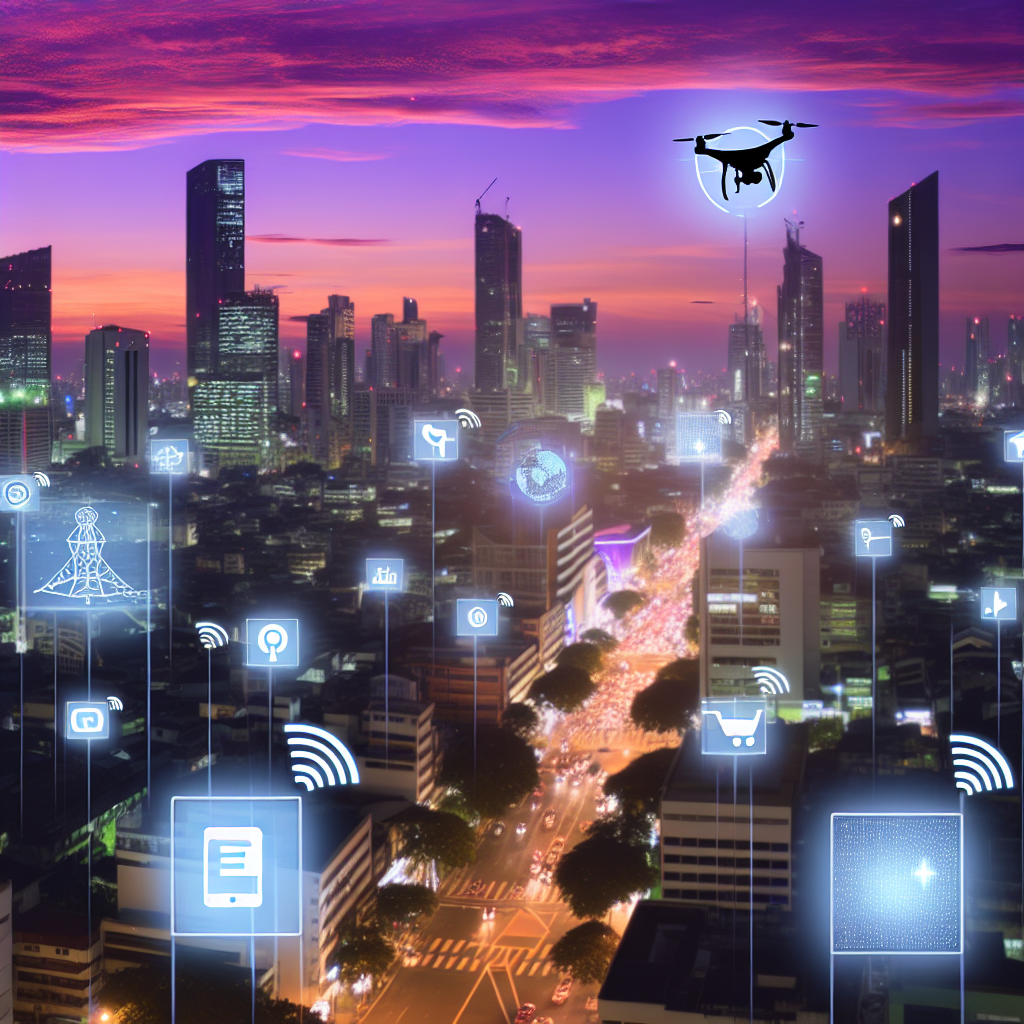
In smart cities, the integration of technology and data plays a crucial role in enhancing public services and improving urban infrastructure. Through the use of Internet of Things (IoT) devices, cities can gather real-time data on various aspects of city life, such as transportation, energy usage, waste management, and public safety. This data can then be analyzed to identify patterns and trends, allowing city officials to make informed decisions that ultimately benefit the residents.
One key aspect of enhancing public services in smart cities is the implementation of sustainable practices. By leveraging technology, cities can monitor and optimize energy usage, reduce waste, and promote cleaner transportation options. This not only helps to reduce the city's environmental impact but also improves the overall quality of life for residents.
Furthermore, smart cities can use technology to improve the efficiency and effectiveness of public services. For example, by implementing smart traffic management systems, cities can reduce congestion and improve the flow of traffic, leading to shorter commute times and less air pollution. Additionally, smart waste management systems can optimize garbage collection routes, leading to cost savings and a cleaner urban environment.
Overall, the future of urban infrastructure in smart cities is bright, with technology playing a key role in enhancing public services and improving the quality of urban living. By embracing sustainability and leveraging IoT devices, cities can create more efficient, livable, and environmentally friendly spaces for their residents.
4. "Navigating the Evolution of Smart Cities: Embracing Technology for Better Urban Living"
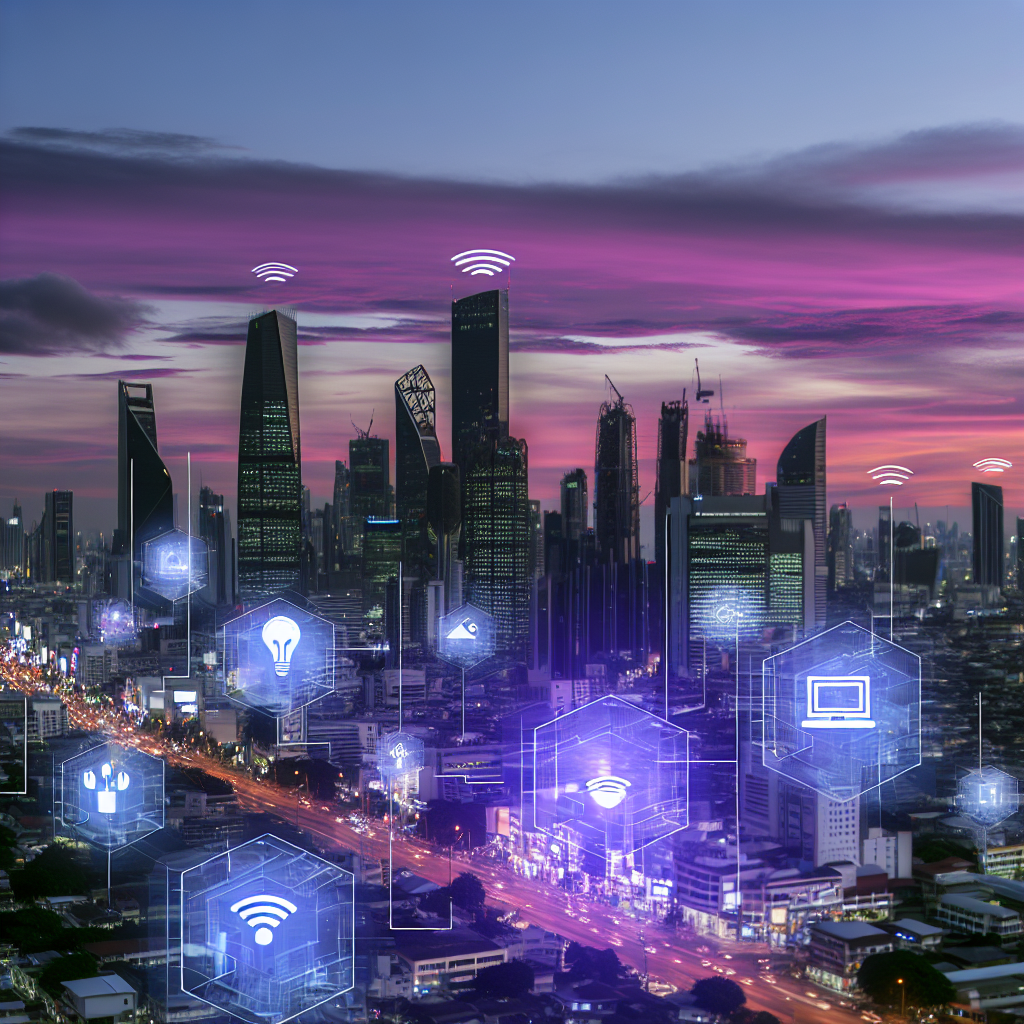
As cities continue to grow and face challenges related to population density, pollution, and resource management, the concept of smart cities has emerged as a solution to improve urban living. Smart cities leverage technology, such as IoT (Internet of Things), to enhance sustainability, efficiency, and the quality of public services.
By embracing technology, smart cities can optimize resources, reduce energy consumption, and improve transportation systems. For example, sensors can be used to monitor air quality, manage waste collection, and regulate traffic flow. This not only benefits the environment but also enhances the overall quality of life for residents.
Additionally, smart cities can offer innovative solutions for public services, such as healthcare, education, and safety. For instance, telemedicine services can provide healthcare access to remote areas, smart classrooms can enhance learning experiences, and real-time crime mapping can improve public safety.
Overall, navigating the evolution of smart cities requires a collaborative effort between government, businesses, and residents to embrace technology for better urban living. By investing in sustainable practices and leveraging the power of IoT, cities can create more efficient, resilient, and inclusive communities for all.
In conclusion, the evolution of smart cities is truly transforming urban living for the better. Through the implementation of IoT technology, smart cities are revolutionizing the way we interact with our environment and each other. Sustainability is at the forefront of these developments, with smart cities leading the way in creating more environmentally friendly and efficient urban spaces. Public services are also being enhanced through the integration of technology, improving the quality of life for residents. As we continue to navigate the evolution of smart cities, it is clear that embracing technology is key to creating a more connected, sustainable, and livable urban future. Smart cities are paving the way for a more efficient and innovative urban living experience.


